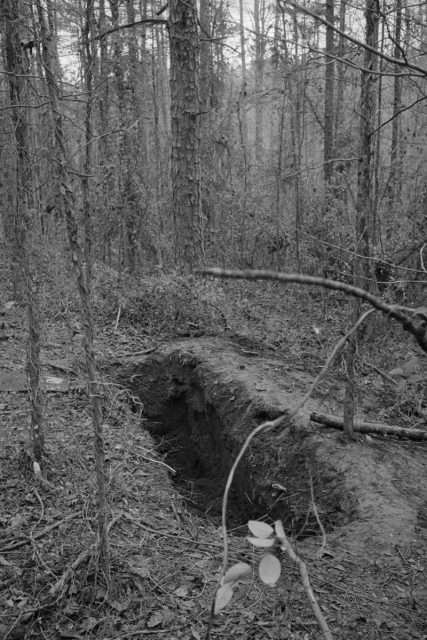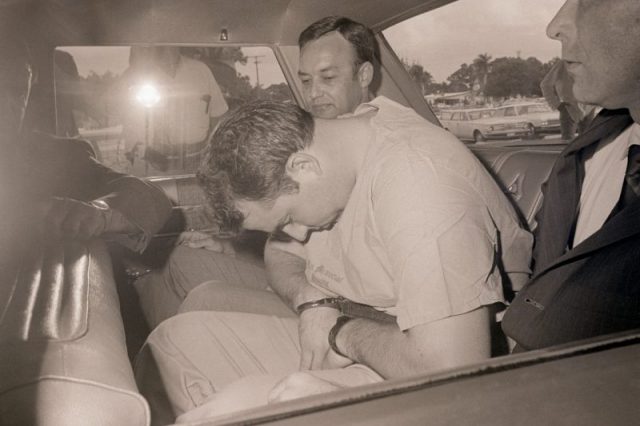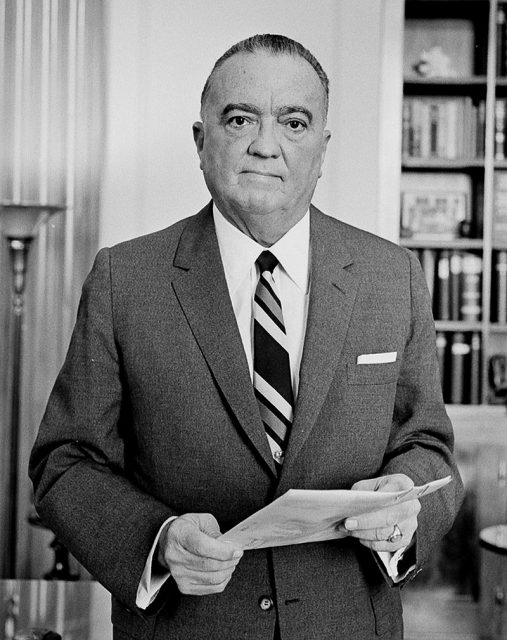Barbara Jane Mackle led a charmed life. The 20-year-old was pretty and popular, the daughter of Robert F. Mackle, a Miami-based millionaire who, with his two brothers, owned the Deltona Corporation, one of the biggest home-building companies in the U.S., and was a good friend of President Richard Nixon. But a knock on the door, almost 50 years ago, led to one of the most shocking and horrific crimes in U.S. history.
It started eight days before Christmas, in 1968. Barbara, a student at Emory University in Atlanta, came down with a bad case of the flu. The school’s infirmary was full, so her mother, Jane, drove from the family’s home in Coral Gables to care for her at a nearby motel.
Late at night there was a knock on the hotel door. On the other side, a male voice said that Barbara’s boyfriend (and future husband), Stewart Woodward, had been involved in a car accident. Joan Mackle opened the door and came face to face with a man holding a shotgun and female accomplice in a ski mask: Garry Steven Krist, 23, and Ruth Eisemann-Schier, 26. The two knocked Jane out with chloroform and bound her up with cord, then seized Barbara and shoved her into a blue car.

They drove about 20 miles to a remote wooded area. Then Krist forced Mackle into an open hole which contained an elaborately-outfitted fiberglass-reinforced box (3 ft x 3 1/2 ft x 7 ft). Krist told the hysterical girl that she had food, water, a blanket, a battery-operated light and ventilating fan, and a pump to get rid of water should it rain. The supplies and batteries would last a week, if used sparingly. Krist began hammering screws into the lid and encasing the coffin-like box in dirt, burying the screaming girl alive. Barbara pounded frantically on the lid, but her pleas were in vain. Krist’s final words: “Don’t be such a baby.”
Later that morning, the telephone rang at the Mackle’s home. Robert and Jane Mackle were told that their daughter was buried in a box and would suffocate unless they paid a ransom of $500,000. Two additional demands: The ransom was to be put in a single suitcase and Robert was to come alone. If Robert Mackle agreed to the terms, he was to put a classified ad in the Miami Herald. He did. It read: LOVED ONE. Please come home. We will pay all expenses and meet you anywhere at any time. Those casually reading the message would never suspect the heart-breaking story behind it.
Two days later, Mackle received another call telling him to drive to a designated spot at Biscayne Bay, leave the ransom, and drive off. He complied, but the drop-off didn’t go as planned: A neighbor, hearing noises and thinking it might be burglars, alerted police. The officers—in the dark about the drop-off—spotted two people coming out of the woods and gave chase. Krist and his accomplice dropped the suitcase filled with ransom money and ran off.
A boat and an abandoned blue Volvo were found nearby. In the car, police found a Polaroid of Barbara Mackle, dressed in the red and white flannel nightgown she had been wearing when as was abducted. She was holding a sign: KIDNAPPED.
Meanwhile, the girl in the photograph was trying to hold it together by thinking happy thoughts: singing Christmas carols aloud and off-key, thinking about decorating the family tree, remembering a day of ice-skating with her boyfriend.
But she couldn’t stop the gruesome thoughts from creeping into her head. In a 1971 book about the ordeal, 83 Hours Till Dawn, Barbara recalled: “I said to myself, ‘This is where I am going to die.’ Three or four times I thought this is going to be my casket. When I got morbid, I would think of who would find me. Who and wh

en and how. Maybe it would be a farmer. Or someone building something. In ten years? Twenty years? … I was cold and I was wet, and I ached.” Things would get even worse. Eventually, her tiny light ceased to work and the cramped space descended into total darkness.
Robert Mackle, meanwhile, was trying desperately to bring his only daughter home. Devastated that he may have lost his only chance to rescue her, he issued a press release addressed to the kidnappers, assuring them he had nothing to do with the botched pickup. It worked: Mackle received a telephone call instructing him to drive to a dirt road west of Miami, and leave the suitcase of money. Mackle did as instructed and waited by the phone with his wife and members of the FBI.
At 3 P.M., the call came. Krist gave directions to Barbara’s location, but they were sketchy. More than a hundred FBI agents raced to the area and began searching. After what seemed like an eternity, one man finally heard a faint knock. Frantically the men began digging into the earth with their bare hands.
Twelve minutes later, Barbara Mackle—weak but unharmed—was lifted out of her grave. As one of the FBI agents carried her to an awaiting car, she managed to display an unexpected sense of humor, telling him, with a small smile, “You are the handsomest man I’ve ever seen.” Then-FBI Director J. Edgar Hoover broke the happy news to her parents.

Krist was found near the Florida coast after law enforcement tracked down a speedboat he had purchased with most of the ransom money. Eisemann-Schier evaded capture for 79 days. (She had the dubious honor of being the first woman to be on the FBI’s “Ten Most Wanted” list.) Krist was convicted and sentenced to life in prison in 1969, but was released on parole 10 years later.
Unfortunately, he squandered his second chance at freedom. He went on to study at medical schools in Grenada and Dominica, and eventually found work as a general practitioner in Indiana, but in 2003 his license was revoked. Three years later, he found trouble yet again—this time, for chartering a boat to South America and bringing cocaine and illegal aliens into the country. Krist was arrested in Alabama, sentenced to five years in prison, and was released in 2010. In 2012, a U.S. District judge revoked his release for violating his probation (he had left the country without permission) and he was sentenced to a further 40 months behind bars. Today, Krist reportedly lives in Auburn, Georgia. Eisemann-Schier was deported to her to her native Honduras after serving four years in prison.
Barbara Mackle, now Barbara Woodward, is married with four children, and lives in Florida. Her memories of those three-and-a-half days in December are her own. She has refused interviews over the many years.
Barbara Stepko is a New Jersey-based freelance editor and writer who has contributed to AARP magazine and the Wall Street Journal.
